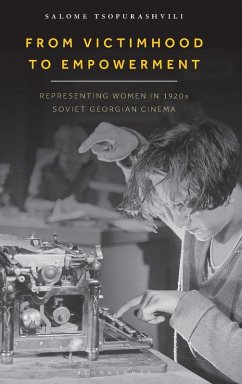From Victimhood to Empowerment: Representing Women in 1920s Soviet Georgian Cinema brings the cinematographic works of Georgia's State Film Industry from the margins of the Soviet film studies to the center. The book focuses on women's representations and explores how the gender roles were modified throughout the decade according to the new social and political ideals employing the discourse analysis, postcolonial perspectives, and psychoanalytical feminist film theories. Bringing together Soviet Georgia's most important films of the period, the book inspects the female body's symbolic function in the aspects of class dichotomy, orientalised 'other', revolutionary setting and as the 'heroine' and the 'villain' of the new social order- the New Soviet Woman and the Nepwoman (a person who engaged in private enterprise during the New Economic Policy of the 1920s) respectively. In the light of Bolsheviks' preoccupation and endeavour to improve 'woman question', the book surveys to what extent women's screen images were emancipated during the decade and what the functional meaning of this emancipation was in the given context, how the new ideals of New Soviet woman were inscribed in the period's films, and how these ideals were combined with Georgian nationality.
Hinweis: Dieser Artikel kann nur an eine deutsche Lieferadresse ausgeliefert werden.
Hinweis: Dieser Artikel kann nur an eine deutsche Lieferadresse ausgeliefert werden.








